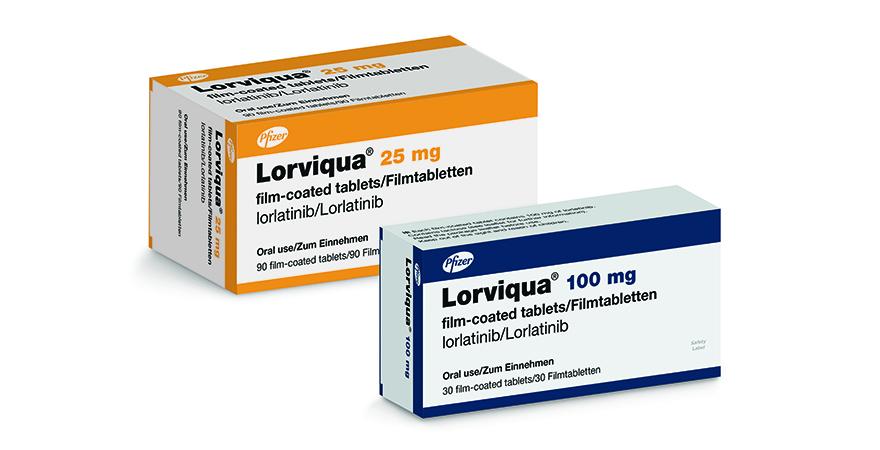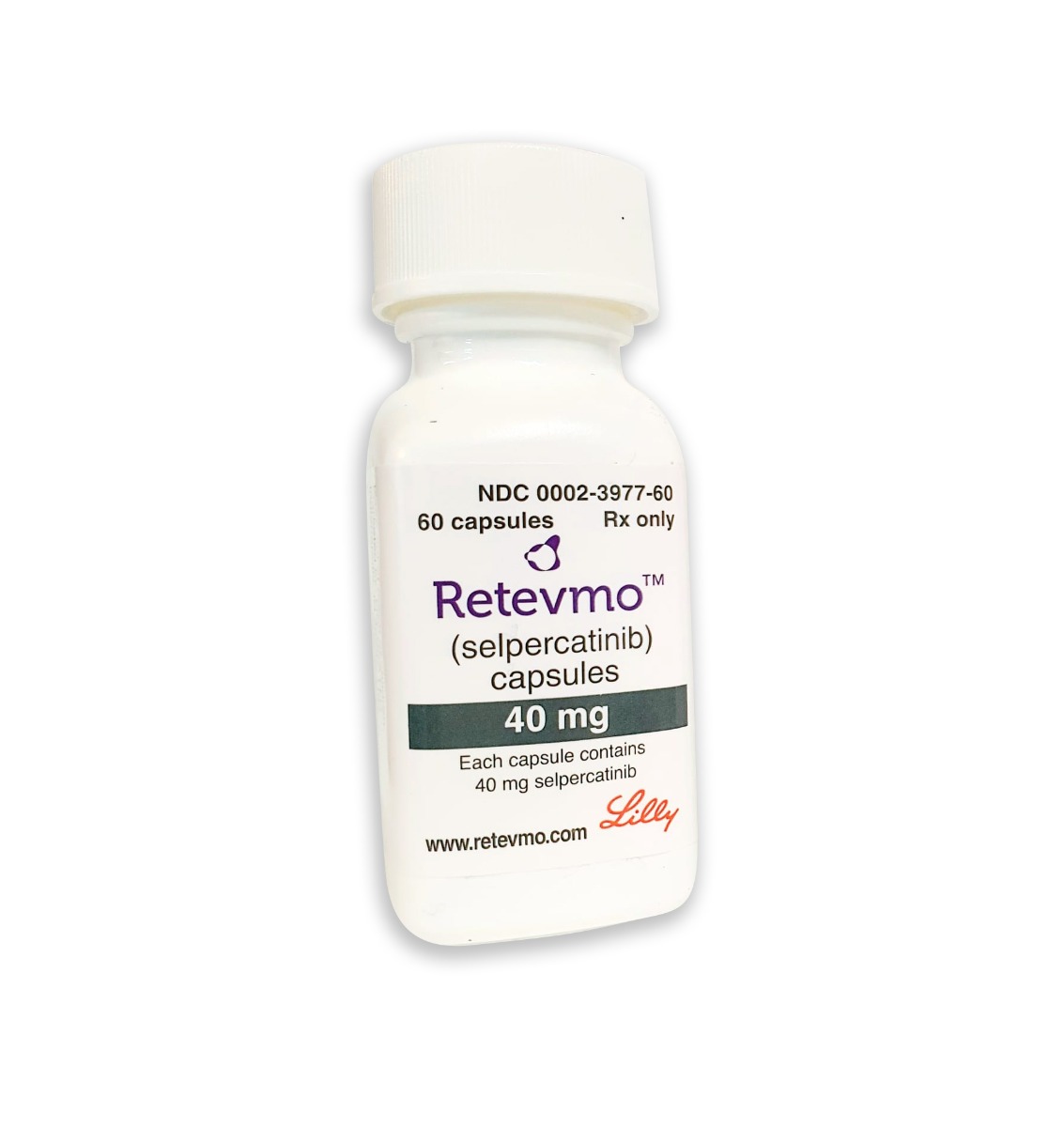Lorviqua (lorlatinib) vs Retsevmo (selpercatinib)
Lorviqua (lorlatinib) vs Retsevmo (selpercatinib)
Lorviqua (lorlatinib) and Retsevmo (selpercatinib) are both targeted therapies used to treat certain types of lung cancers, but they are designed to target different genetic mutations. Lorviqua is a third-generation anaplastic lymphoma kinase (ALK) inhibitor indicated for patients with ALK-positive metastatic non-small cell lung cancer (NSCLC), particularly those who have progressed on prior ALK inhibitors. In contrast, Retsevmo is a selective RET kinase inhibitor used for NSCLC patients with RET gene fusions, as well as for certain types of thyroid cancer with RET alterations, offering an option for patients with these specific genetic profiles. When deciding between these medications, it is crucial to undergo genetic testing to determine the presence of either the ALK or RET genetic mutations in the cancer cells, as this will guide the choice of treatment.
Difference between Lorviqua and Retsevmo
| Metric | Lorviqua (lorlatinib) | Retsevmo (selpercatinib) |
|---|---|---|
| Generic name | lorlatinib | selpercatinib |
| Indications | ALK-positive metastatic non-small cell lung cancer | RET fusion-positive non-small cell lung cancer, RET-mutant medullary thyroid cancer, and advanced RET fusion-positive thyroid cancer |
| Mechanism of action | ALK and ROS1 tyrosine kinase inhibitor | RET kinase inhibitor |
| Brand names | Lorviqua | Retsevmo |
| Administrative route | Oral | Oral |
| Side effects | Hypercholesterolemia, hypertriglyceridemia, edema, peripheral neuropathy, cognitive effects | Increased AST/ALT, increased blood glucose, dry mouth, diarrhea, hypertension |
| Contraindications | Severe hypersensitivity to lorlatinib | Severe hypersensitivity to selpercatinib |
| Drug class | Tyrosine kinase inhibitor | Tyrosine kinase inhibitor |
| Manufacturer | Pfizer | Eli Lilly and Company |
Efficacy
Lorviqua (lorlatinib) Efficacy in Lung Cancer
Lorviqua, also known by its generic name lorlatinib, is a medication specifically designed to treat certain types of lung cancer. It is particularly effective in non-small cell lung cancer (NSCLC) that is anaplastic lymphoma kinase (ALK)-positive. Lorlatinib is a third-generation ALK inhibitor that can be used in patients who have progressed on prior ALK inhibitors. Clinical trials have demonstrated lorlatinib's ability to provide a significant response in patients with ALK-positive metastatic NSCLC, especially those who have shown resistance to earlier-generation ALK inhibitors. It has shown efficacy in both systemic disease and in controlling central nervous system metastases, which is a common complication in ALK-positive NSCLC patients.
The efficacy of Lorviqua was evaluated in a non-randomized, dose-escalation, and expansion study (Study B7461001) that included patients with ALK-positive metastatic NSCLC. The results indicated a substantial objective response rate (ORR) and a median duration of response (DOR) that supports its use in this patient population. The ORR was particularly notable in patients who had received one or more prior ALK inhibitors. Lorviqua's ability to cross the blood-brain barrier also contributes to its effectiveness in treating brain metastases, which is a significant challenge in lung cancer management.
Retsevmo (selpercatinib) Efficacy in Lung Cancer
Retsevmo, with the generic name selpercatinib, is a targeted therapy approved for the treatment of lung cancer, specifically for RET fusion-positive non-small cell lung cancer (NSCLC). Selpercatinib is a selective RET kinase inhibitor that has shown promising results in treating NSCLC patients whose tumors have RET gene alterations. The efficacy of Retsevmo has been demonstrated in clinical trials, where it has shown a high objective response rate and durable responses in patients with RET fusion-positive NSCLC, including those who are treatment-naive or who have previously received platinum-based chemotherapy.
The approval of Retsevmo was based on the results from the LIBRETTO-001 trial, which was a multicenter, open-label, multi-cohort clinical trial. This trial included patients with RET fusion-positive NSCLC, and the results showed a significant objective response rate, with many patients experiencing a reduction in tumor size. Furthermore, Retsevmo has also shown activity against brain metastases, which is an important consideration in lung cancer treatment. The safety and efficacy of selpercatinib continue to be studied in ongoing clinical trials, but the current data supports its use as a valuable treatment option for patients with RET fusion-positive NSCLC.
Regulatory Agency Approvals
Lorviqua
-
European Medical Agency (EMA), European Union

-
Food and Drug Administration (FDA), USA

-
Health Canada

-
Therapeutic Goods Administration (TGA), Australia

Retsevmo
-
European Medical Agency (EMA), European Union

-
Food and Drug Administration (FDA), USA

Access Lorviqua or Retsevmo today
If Lorviqua or Retsevmo are not approved or available in your country (e.g. due to supply issues), you can access them via Everyone.org.
How it works

Make an enquiry
Choose the medicine you want to buy, answer a couple of questions, and upload your prescription to speed things up. We’ll get back to you within 24 hours.


Make an enquiry
Choose the medicine you want to buy, answer a couple of questions, and upload your prescription to speed things up. We’ll get back to you within 24 hours.


Breeze through the paperwork
We'll guide you through the required documents for importing unapproved medicine, ensuring you have all the necessary information.


Get a personalized quote
We’ll prepare a quote for you, including medicine costs and any shipping, administrative, or import fees that may apply.


Receive your medicine
Accept the quote and we’ll handle the rest - sourcing and safely delivering your medicine.

Some text on this page has been automatically generated. Speak to your physician before you start a new treatment or medication.
Let's talk
If you have any questions, call us or send us a message through WhatsApp or email:
Contact us




